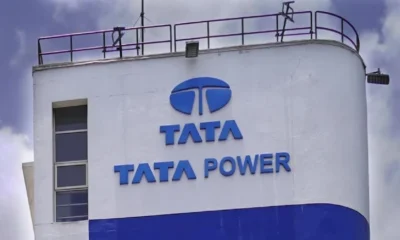Finance Minister Nirmala Sitharaman recently announced that the Indian government would exempt import duties on key items used in the manufacturing of electric vehicle (EV) batteries and mobile phones, marking a significant policy move to foster domestic production. The exemption will apply to 35 items used for EV battery manufacturing and 28 items related to mobile phone production, a decision aimed at stimulating local industries and improving India’s export competitiveness.
This step is part of a broader strategy by the government to help local producers cope with potential challenges stemming from reciprocal tariffs that could be imposed by the United States. The Indian government is anticipating these tariffs to take effect on April 2, following ongoing trade negotiations between the two nations. These talks aim to resolve tariff issues and establish a comprehensive bilateral trade pact.
According to Sitharaman, the objective behind reducing duties on raw materials is to enhance the cost-effectiveness of local manufacturing, allowing Indian industries to be more competitive in the global market. By cutting import duties on raw materials, the government hopes to reduce production costs, boost efficiency, and encourage domestic manufacturing of high-tech products such as mobile phones and EV batteries. This decision also aligns with India’s broader vision of reducing dependency on foreign imports, especially in critical sectors like electric vehicles and electronics, which are crucial for the country’s future growth and sustainability.
The Finance Minister emphasized that these exemptions would significantly support local industries by lowering the cost of production for critical components. As a result, this policy is expected to contribute to the government’s ‘Make in India’ initiative, which aims to turn India into a global manufacturing hub.
In addition to these exemptions, the Indian government is also engaged in discussions with the U.S. over trade tariffs. Reports from Reuters indicate that India is exploring the possibility of reducing tariffs on over half of the U.S. imports worth approximately $23 billion. This is expected to be part of the first phase of a larger trade agreement between the two nations.
Furthermore, the decision to cut duties on raw materials follows the recommendations of a parliamentary committee that recently urged the government to reduce tariffs on the import of essential components to help local manufacturers. The committee’s suggestion is part of a larger push to address concerns about the rising costs of raw materials and to promote local manufacturing.
In conclusion, by exempting duties on key raw materials, the Indian government aims to strengthen its domestic industries and enhance their global competitiveness. This move is part of India’s broader efforts to maintain favorable trade relations with the U.S., support local manufacturers, and ensure the sustainable growth of critical sectors like electric vehicles and mobile phones.
IT.




























